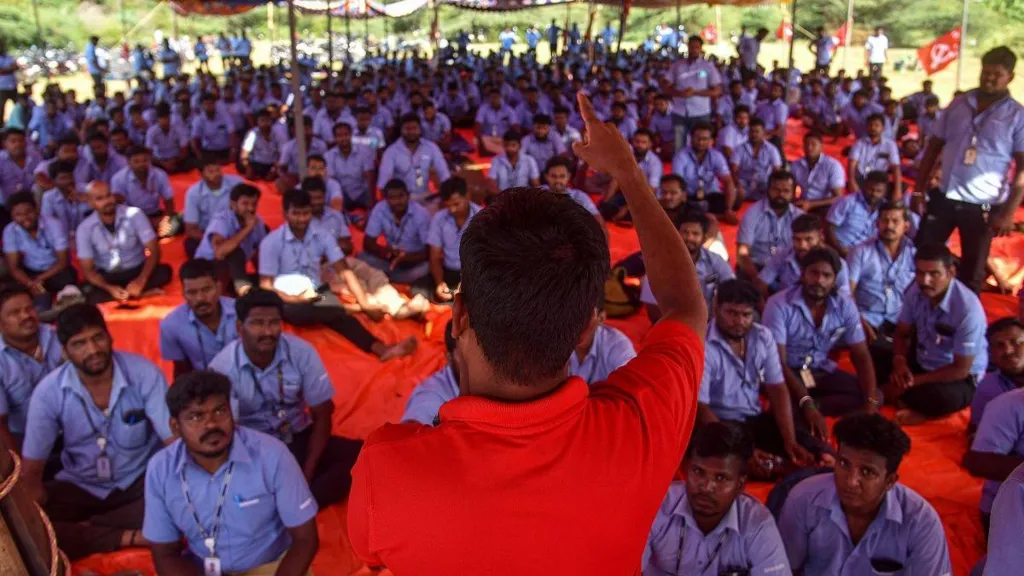For the past 11 days, about 1,500 workers at Samsung Electronics’ Chennai plant in Tamil Nadu, India, have been on strike, causing major production disruptions. This factory, one of Samsung’s two in India, employs nearly 2,000 people and contributes roughly one-third of the company’s $12 billion annual revenue from the region.
The workers are protesting daily, demanding that Samsung recognize their newly-formed union, the Samsung India Labour Welfare Union (SILWU). They believe that only a union can help them secure better wages and working conditions.
The strike, one of Samsung’s largest in recent years, comes amid Prime Minister Narendra Modi’s efforts to position India as a key manufacturing hub. Samsung India has stated that worker welfare is its top priority and is working to resolve the issues.

Earlier, police detained around 104 workers for protesting without permission, but they were released later in the day. The workers, supported by the Centre of Indian Trade Unions (CITU) and the Communist Party of India (Marxist), are demanding that Samsung recognize SILWU, permit collective bargaining, and reject competing unions. About 90% of the workforce is affiliated with SILWU.
The workers, who earn an average of 25,000 rupees ($298; £226) per month, seek a 50% wage increase over three years. They also claim they are pressured to complete tasks too quickly, work long hours without breaks, and face unsafe conditions. There are also allegations of pressure to abandon the new union and threats to their families.
Samsung India denies these claims and asserts full compliance with labor laws. Tamil Nadu’s Labour Welfare Minister has assured that talks are ongoing to address the workers’ concerns.
Protester Sijo, who attends the strike daily from 08:00 to 17:00, highlights the deterioration in working conditions and inadequate pay. Until 2020, Samsung was known for not allowing unions, but this stance changed following intense public scrutiny.
Labor rights activists criticize multinational companies for exploiting Indian workers and resisting local labor laws. Shyam Sundar, a labor economist, notes that companies often use various strategies to prevent union formation, such as opposing external unions and hiring young, unskilled workers on temporary contracts. According to recent statistics, about 40% of factory workers in India are on contract, and companies use threats of relocation or non-expansion to discourage labor law enforcement. However, global labor unions can pressure companies to adhere to international labor standards.




Leave a Reply